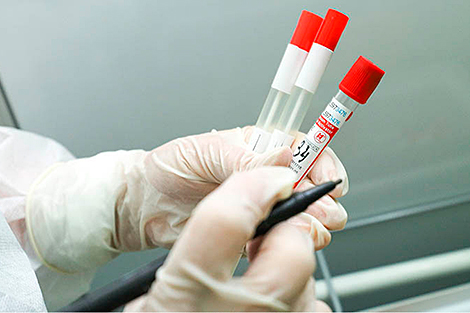Opinions & Interviews
Belarus’ Healthcare Ministry expects coronavirus pandemic to end by summer of 2021

An archive photo
MINSK, 15 October (BelTA) - The coronavirus pandemic will end by the summer of 2021, Belarus’ Acting Healthcare Minister Dmitry Pinevich said as he met with students of the Belarusian State Medical University, BelTA has learned.
“The incidence of COVID-19 decreased in the summer. Now we are seeing the so-called new wave. The strain will remain pandemic for a year and a half. We will forget about it as a pandemic only by the summer of next year," Dmitry Pinevich said.
According to him, the virus has reduced its virulence. Nevertheless, it continues to pose a certain danger to the elderly. In general, patients have become younger.
The incidence rate is now about half of that of the spring period. This also applies to the number of hospitalized patients. Work has begun to re-purpose the hospitals for COVID patients. “We expect that the situation will be difficult. But we believe that the treatment protocols, which were developed in the spring, will help us get through this period," the acting minister said. He added that the country has received supplies of low-molecular heparins and the Remdesivir drug that are used to treat patients with COVID-19.
According to Dmitry Pinevich, the reaction of the human body to coronavirus is uniquely different from that to the seasonal influenza. Many of the students who were in intensive care saw it. “But to lock down all spheres of life, including education, would be the gravest mistake,” the acting minister believes.
“To move all things online and study the art of healing while at home? The world after COVID will be different. Some think that some students will continue training face-to-face, at the bedside of a patient, in contact with the professor, while others will have to learn online, which will affect the quality of education. We need to approach everything carefully, consider all risks and threats,” Dmitry Pinevich noted. He spokesin favor of classroom education for medical students, though online lectures are a possibility too.
At the meeting, the students also asked whether the work in the "red zones" will earn them any credits. Dmitry Pinevich responded positively. "All those who worked in the ‘red zones’ will be entitled to bonuses," he said.







 print version
print version make home page
make home page add to bookmarks
add to bookmarks

